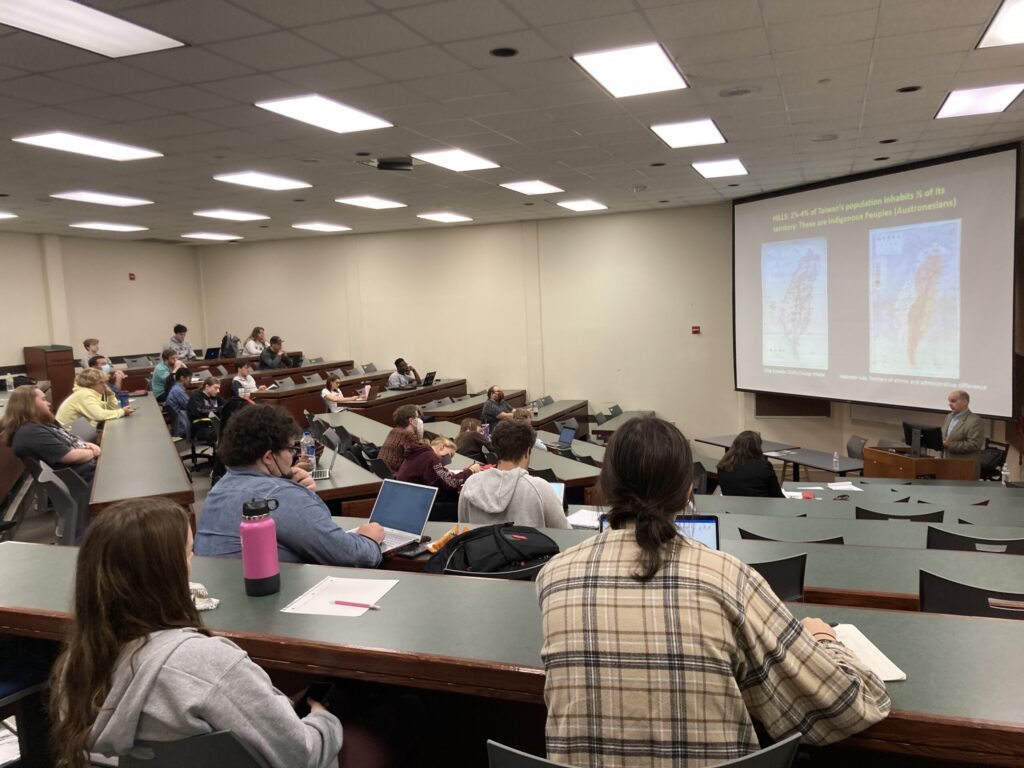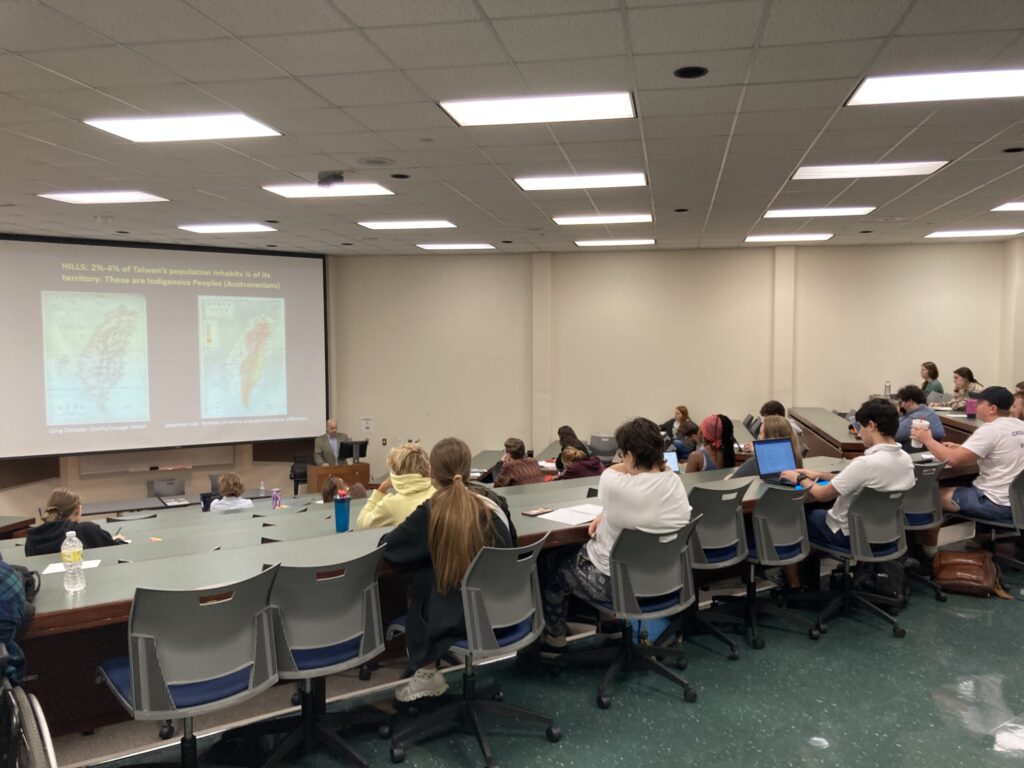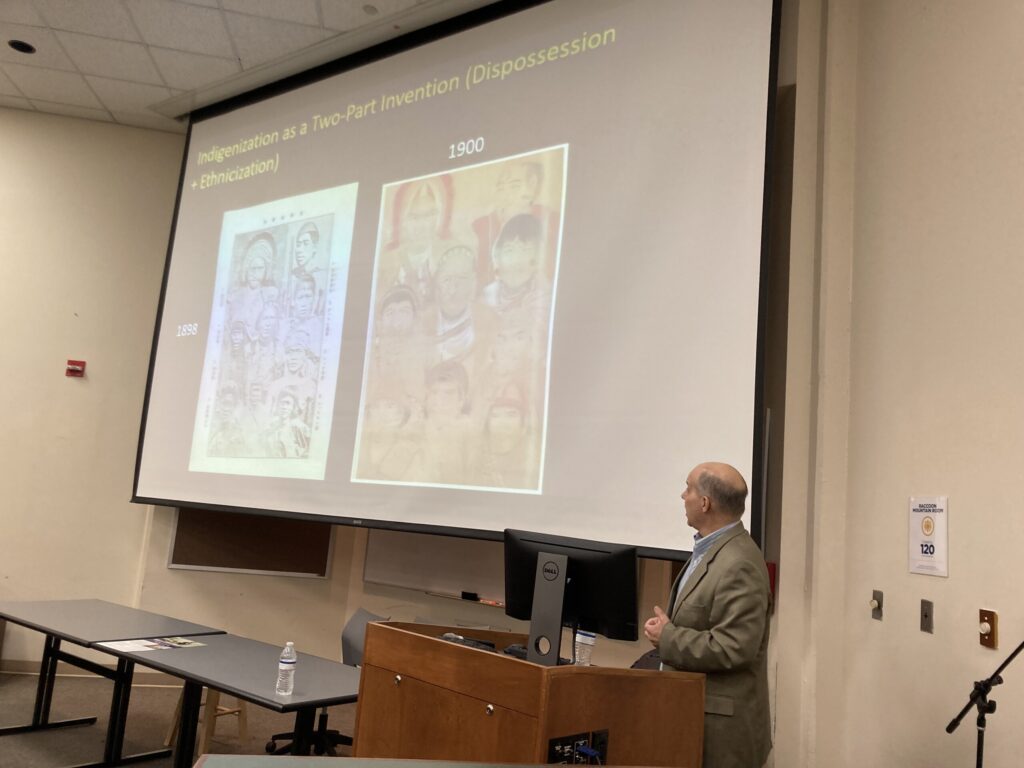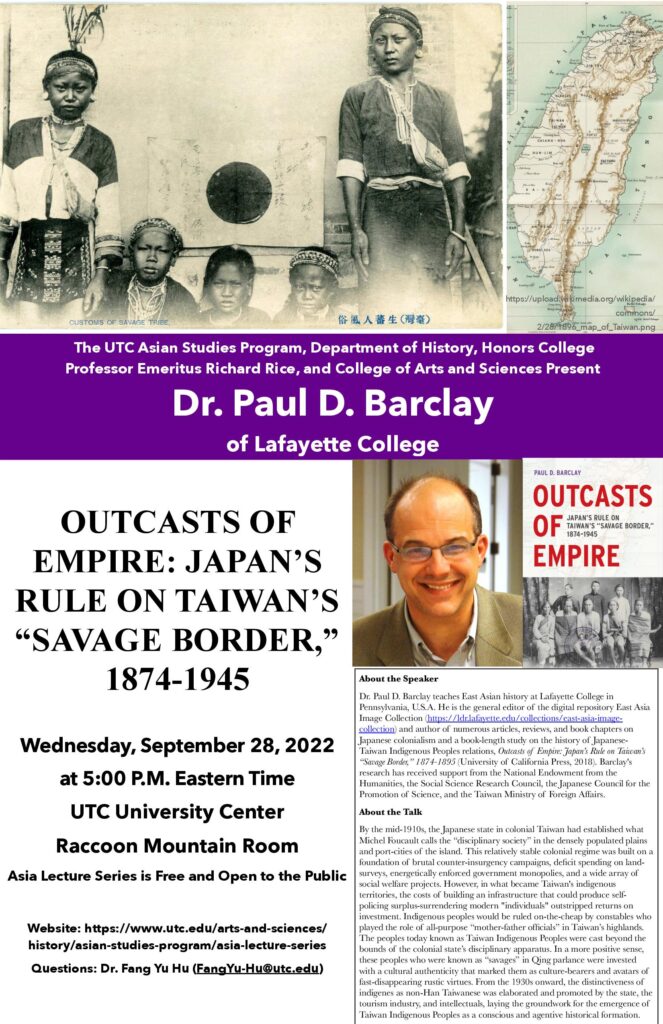Pictures from the Event:



The UTC Department of History, Asian Studies Program, Honors College, Professor Emeritus Richard Rice, and the College of Arts and Sciences cordially invite you to a guest lecture by Dr. Paul Barclay of Lafayette College. Dr. Barclay will give a public lecture on the indigenous peoples of Taiwan under Japanese colonial rule from the late nineteenth to the mid-twentieth century.
Event: Public Lecture “Outcasts of Empire: Japan’s Rule on Taiwan’s “Savage Border,” 1874-1945”
Date: Wednesday, September 28, 2022
Time: 5:00pm Eastern Standard Time
Location: UTC University Center Raccoon Mountain Room
Website: https://www.utc.edu/arts-and-sciences/history/asian-studies-program/asia-lecture-series
About the Lecture
Dr. Paul Barclay of Lafayette College will give a talk based on his book, Outcasts of Empire: Japan’s Rule on Taiwan’s “Savage Border,” 1874-1945. By the mid-1910s, the Japanese state in colonial Taiwan had established what Michel Foucault calls the “disciplinary society” in the densely populated plains and port-cities of the island. This relatively stable colonial regime was built on a foundation of brutal counter-insurgency campaigns, deficit spending on land-surveys, energetically enforced government monopolies, and a wide array of social welfare projects. However, in what became Taiwan’s indigenous territories, the costs of building an infrastructure (including schools, courts, prisons, hospitals, banks) that could produce self-policing surplus-surrendering modern “individuals” outstripped returns on investment. Therefore, indigenous peoples would be ruled on-the-cheap by constables who played the role of all-purpose “mother-father officials” in Taiwan’s highlands. In short, the peoples today known as Taiwan Indigenous Peoples were cast beyond the bounds of the colonial state’s disciplinary apparatus. In a more positive sense, these peoples who were known as “savages” in Qing parlance were invested with a cultural authenticity that marked them as culture-bearers and avatars of fast-disappearing rustic virtues. From the 1930s onward, the distinctiveness of indigenes as non-Han Taiwanese was elaborated and promoted by the state, the tourism industry, and intellectuals, laying the groundwork for the emergence of Taiwan Indigenous Peoples as a conscious and agentive historical formation.
About the Speaker
Dr. Paul D. Barclay teaches East Asian history at Lafayette College in Pennsylvania, U.S.A. He is the general editor of the digital repository East Asia Image Collection (https://ldr.lafayette.edu/collections/east-asia-image-collection) and author of numerous articles, reviews, and book chapters on Japanese colonialism and a book-length study on the history of Japanese-Taiwan Indigenous Peoples relations, Outcasts of Empire: Japan’s Rule on Taiwan’s “Savage Border,” 1874-1895 (University of California Press, 2018). Barclay’s research has received support from the National Endowment from the Humanities, the Social Science Research Council, the Japanese Council for the Promotion of Science, and the Taiwan Ministry of Foreign Affairs.
Contact: Dr. Fang Yu Hu (FangYu-Hu@utc.edu)
